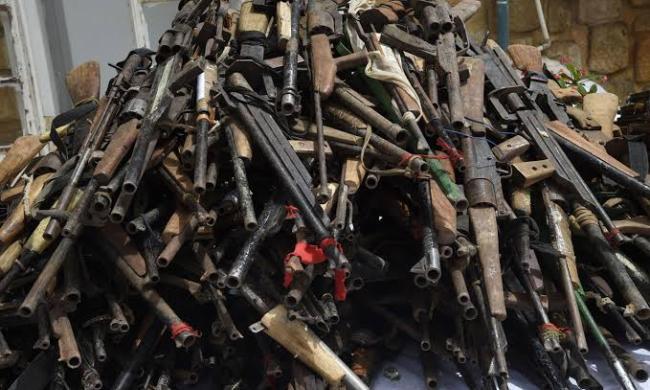
As security challenges intensify, Nigeria has issued a warning regarding the influx of weapons from Libya, attributing it to rising incidents of terrorism, banditry, and kidnapping within its borders.
Hafsat Abubakar Bakari, the CEO of the Nigerian Financial Intelligence Unit (NFIU), brought attention to this issue during a roundtable discussion held by the Center for International Private Enterprise in Washington, D.C. She indicated that the flow of arms from Libya has severely aggravated Nigeria’s internal security issues and has been instrumental in spreading terrorism throughout the nation, according to Libya Review.
Bakari underscored the necessity for long-term, sustainable solutions instead of temporary fixes to address this escalating threat. “The inflow of weapons from Libya is directly linked to the escalation of Nigeria’s security crisis. We need more than stopgap measures; we need sustainable solutions,” she stated.
The chaos following the 2011 ousting of Muammar Gaddafi has transformed Libya into a significant hub for arms trafficking. Weapons from Libya have inundated neighboring regions, including Nigeria, where groups like Boko Haram and ISWAP exploit these arms to perpetuate violence and instability. The porous borders and fragile security in the Sahel have further facilitated this illicit trade, exacerbating insurgencies and criminal acts.
Bakari’s remarks highlighted the far-reaching consequences of Libya’s ongoing turmoil. The unchecked arms trade has emerged as a major factor fueling conflict across West and North Africa, with Nigeria experiencing the most severe impact.
In her presentation, Bakari also detailed Nigeria’s initiatives to enhance its Anti-Money Laundering and Counter-Financing of Terrorism and Proliferation (AML/CFT/CPF) framework. These measures are aimed at identifying and disrupting the financial networks that support terrorism and arms trafficking. She mentioned that Nigeria is collaborating with international partners to bolster its security and financial systems to effectively tackle these issues.
Bakari noted that the NFIU is actively engaging with key stakeholders to combat financing of terrorism. She revealed that Nigeria has revitalized the Joint Task Force on terrorism finance in the Sahel, with member states scheduled to convene in Abuja later this month to formalize their collaboration.
During her visit, she called for increased international support, urging global partners to assist Nigeria in its battle against terrorism, particularly in the Sahel and Lake Chad regions. “We need your help to implement sustainable solutions to fight terrorism and disrupt the flow of weapons from Libya,” Bakari urged the audience.
Bakari also met with Oge Onubogu, Director of the Africa Program at the Wilson Center, to discuss collaborative efforts aimed at promoting Nigeria’s reforms in combating terrorism financing. They agreed to work together to raise awareness among U.S. public and private sectors regarding Nigeria’s groundbreaking security and financial reforms.
For more updates, join our WhatsApp channel: WhatsApp Channel